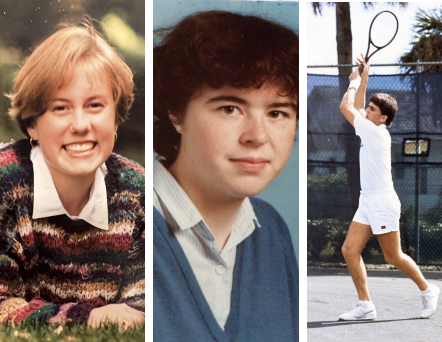I was eleven the first time I was catcalled. I was walking home from school in June with my flowery dress was sticking to my sweaty stomach and my hair tied up in a ponytail. I hadn’t noticed the white minivan parked a little way ahead to my right, and I certainly hadn’t noticed the man hopping out of it, not until he blocked my path and started talking. He called me baby and asked where I was going. I tried to leave without answering, but he grabbed my arm. He called me pretty and told me he wanted to kiss me. I screamed, he let go, and I ran all the way home.
Around one in three women are sexually harassed on the streets, according to Stop Street Harassment, a non-profit organization geared towards raising awareness about and preventing street harassment. The majority of this harassment is leering and honking and whistling, though over 25% of catcalls lead to rape. To everyone who has never experienced sexual violence or harassment, these are just statistics. To those who have been victimized, humiliated, traumatized, attacked, violated and shamed by this practice, sexual violence or harassment is a life-changing, painful and excruciating thing to go through. Catcalling and street harassment are not benign compliments, they are powerful weapons.
Street harassment is extremely common. Of the 225 people Stop Sexual Harassment interviewed in the summer of 2007, over 99% of them said they had been sexually harassed on the street multiple times. In order to record their experiences, a website called EverydaySexism offers an anonymous place to vent. Many of the quotes offer a look into the everyday life of a victim of sexual harassment. “I was eleven,” says an anonymous ‘Cordy’, “And this guy was stalking me on the tube, looking me up and down. I got off at the next station, and I was really creeped out when he followed. I ran around this station for at least fifteen minutes before finding my way back to my platform. I didn’t tell anyone about it because I thought I was making a fuss, that it was my fault and my skort should have been longer.” This quote shows the fear, guilt and distress a victim feels. It’s my fault, is what the majority of victims feel. They believe their clothes were the problem, their makeup was the problem, the size of their breasts that they refused to hide was the problem, they were the problem. This, of course, is false. Sexual violence and harassment is cased by nothing other than the perpetrator.
The second time I was harassed was in eighth grade. I won’t describe what I was wearing because that didn’t matter, what mattered was the hand on my waist and the fifty or so passersby who didn’t do anything. I started crying, and he told me to shut up and asked if I wanted to check out his nice red truck. I said no so he got mad. I was so, so scared and so, so thankful when somebody stepped in. Now, I can’t afford to take confidence and pride for granted because no matter how much I tell myself it wasn’t my fault, I can’t shake off that icky guilt weighing me down.
Countless victims have been told to take their humiliation as a compliment. That “it isn’t that bad,” and they should “get over it”. The question I have for people who decide to say this to victims is, do you know what it is? What is this it that isn’t worth being angry at, that is complimentary and “not that bad”? To those who have experienced catcalling, it is humiliation, confusion, blame and fear. People catcall to hold power over the victim, to establish that they are more than the victim, that they are allowed to try to control someone. These power games make the perpetrator feel good because even if they fail to attract the victim, they will have caused fear and pain and, to them, only the most powerful (rather than pathetic) can attain this. The effect that this fear mongering has on people ranges from embarrassment and discomfort to humiliation and strong fear. Street harassment makes people feel guilty, sad, afraid, uncomfortable, unloved, objectified, violated, and above all else, less than their harasser.
In order to stop street harassment, everybody needs to take as much action as they can. Parents need to teach, not their daughters to dress conservatively, but their children to respect. Teachers need to enforce peer respect. Strangers need to step in when they see harassment. People need to stop blaming and not believing victims. Everybody has a role in street harassment. By assuming that role and taking a stand, street harassment in a community can come closer and closer to being eliminated. Take that stand.
By Emma Jenkinson


































































Sofia • Apr 20, 2017 at 5:15 pm
This article was so powerful and well written. It was very brave of you to share your personal experiences and for standing up for the victims of sexual harassment.